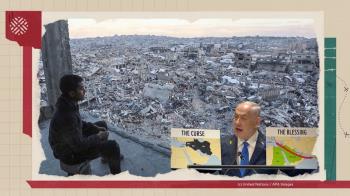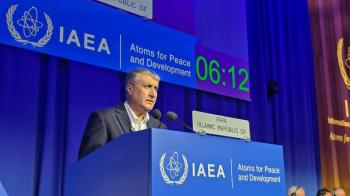Alwaght- Generally, ISIS is considered as a significant and at the same time key element of the Takfiri school of thought across the world, and in terms of principles and ideological roots, the group is not different from movements such as Al-Qaeda. But some ideological characteristics like being anti-Shiite, focusing on close enemy rather than remote enemy, wide-range excommunication, great intolerance, and the Caliphate plan make ISIS stand out noticeably of the other Takfiri groups. Therefore, any change of abovementioned traits in the ISIS' ideology in the forthcoming years would be important. All in all, despite ISIS' firm adherence to its belief and ideological principles, the possibility of some changes in its ideological bases is not unexpected. The possible changes would be highly tied to ISIS' battlefield conditions and the new facts and equations it would encounter.
Although it is believed that ISIS would insist on its anti-Shiite feature in the upcoming years, its potential expansion into other areas would push the extremist group to show more tolerance and flexibility in areas other than Iraq and Syria to attract more people and groups. To put it another way, while it would maintain totalitarian way of governing in its ruling centers, Syria and Iraq, the armed group would be more yielding and alterable out of the borders of its controlled territories.
ISIS' focus on close enemy rather than on remote enemy has been a point of distinction between ISIS and al-Qaeda. While al-Qaeda has concentrated on the West as a remote enemy, particularly on the US, ISIS has focused on the close enemy, especially on the Shiites across the region. But this focus has undergone a process of changes, though the priority is still given to the close enemy rather than remote enemy. The ISIS confrontations and its followers' actions in some European countries like France, and European states' concerns over possible future violent measures by the terror group across the continent all signal that the West as an remote enemy for ISIS cannot stand silent against its acts without any security obsession. It seems that ISIS is gradually shifting its ideology, as it is taking measures against its remote enemy, i.e. the West.
The US intelligence agencies have warned that ISIS has sent some of its commanders to Europe as immigrants to carry out terror missions across Europe, as reports suggest that thousands of European citizens have joined the group. This process would expand in the future and would modify ISIS ideological and intellectual frameworks. The other important issue is that the Shiites would not be targeted by ISIS as the only close enemy. The recent terrorist operations in several countries, including Egypt and Tunisia, indicate that ISIS is bracing for a fresh wave of attacks against the region's Arab governments.
The idea for establishing a Caliphate, which has gone into effect for over a year and kept its shape and frames to a great extent, is still seen as a point of distinction for the ISIS group. The Islamic Caliphate, or Islamic state, could be regarded as ISIS' major intellectual as well as ideological center of gravity, enjoying legitimizing and operational aspects, and in the future it would remain as ISIS' pivotal ideological epicenter. This idea brings forth for ISIS a priority and upper hand in comparison to other Takfiri groups like al-Qaeda. The ISIS' spokesmen asserted that their group is the original representative of the pathway of the Al-Qaeda founder, Osama bin Laden, and the al-Qaeda with its current form under leadership of Ayman al-Zawahiri has moved off its intended course. Abu Muhammad al-Adnani, the ISIS' spokesman, has noted that ISIS relation to al-Qaeda is not like the relation between two organizations, but it is a relation of a government to an organization, and the organization must submit to the government. Al-Adnani's view to the idea of government could be used as a key to figure out the terrorist group's plan for Iraq and Syria.
Considering the centrality of the ideal of Caliphate in ISIS' ideology, it is likely that its preservation and continuation would be ISIS' central effort. But, the group would advocate developing the idea of a decentralized form of Islamic State in some significant areas like North Africa and the Arab Peninsula. Generally, the establishment of Caliphate cannot be ignored by ISIS, because it has ideological and operational functions, as it wins supremacy for ISIS in rivalry with other Takfiri groups.


























